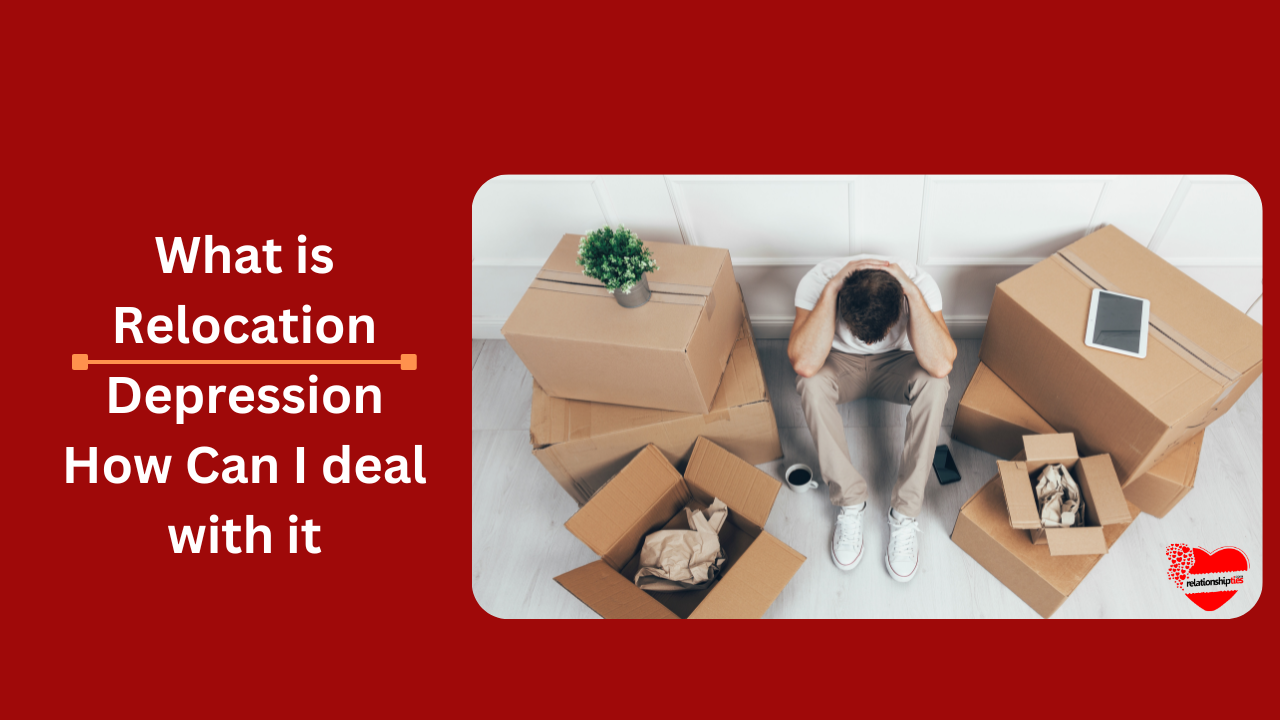Ah, the excitement of new horizons, the thrill of a fresh start – these promises beckon us when we choose to uproot our lives and relocate to a different place. Yet, beneath the glossy surface of adventure lies a tumultuous sea of emotions many of us don’t often anticipate – the treacherous waters of relocation depression.
Picture this: You’ve left behind the familiar, the comfortable, and the routine that once shaped your days. The new city or country holds promise but also brings emotions that can catch you off guard.
You miss the old sights, faces, and feelings of belonging. You have left lovely relationships. It’s as if you’ve been cast adrift in a sea of uncertainty, and the waves of loneliness and sadness threaten to overwhelm you.
The truth is, it’s completely normal to experience relocation depression. You’ve left behind a piece of your heart in the place you used to call home.
You’ve left behind routines that provide a sense of stability and belonging. It’s okay to mourn what you’ve lost, even as you try to embrace what’s new.
But fear not, for amid this emotional storm, there are ways to navigate and eventually conquer the waves of relocation depression.
This article will examine the depths of relocation depression, its possible longevity, and methods for overcoming it. The table of content below will help you navigate around.
Table of contents
What is Relocation Depression Meaning?
Relocation depression is a psychiatric condition many people experience when they relocate, whether for personal, professional, educational, or after Breakup.
Its hallmarks are sadness, anxiety, loneliness, and an overall sense of being cut off from your environment. It’s crucial to understand that you’re not the only one who feels this way; it’s a normal reaction to significant life changes.
What are the Relocation Depression Symptoms?
Relocation depression can manifest in various ways, and its symptoms may vary from person to person. Common Relocation Depression Symptoms include:
- Persistent Sadness: Feeling down, low, or consistently sad without an apparent reason.
- Anxiety: Experiencing unease, worry, and nervousness about the new environment.
- Social Withdrawal: Pulling away from social interactions and isolating oneself.
- Insomnia or Oversleeping: Changes in sleep patterns, difficulty falling or sleeping excessively.
- Lack of Interest: Losing interest in activities that once brought joy.
- Difficulty Concentrating: Finding it hard to focus and complete tasks.
- Physical Discomfort: Headaches, stomachaches, and other physical symptoms caused by stress.
Read Also: 15 Signs on How to Know You Are Ready for a Relationship
Does Relocation Help Depression?
Most times, it does. In fact, it is one of the ways to cope with Depression After Breakup. Relocating to a new place is often seen as an opportunity for a fresh start and a chance to escape the burdens of everyday life.
One of the critical factors that could contribute to relocation helping with depression is the change in environment. Being surrounded by unfamiliar surroundings can provide a sense of novelty and excitement, leading to an increased level of serotonin production.
Additionally, relocating may offer new opportunities for social interaction and support systems that need to be improved. Building healthy relationships and engaging in different activities can stimulate feelings of belonging and fulfillment.
On the other hand, there are cases where relocation exacerbates depressive symptoms. Unexpected challenges such as finding housing or employment, adjusting to cultural differences, or feeling isolated due to a lack of social networks can increase stress levels.
Moreover, leaving familiar environments behind may also result in feelings of loss and nostalgia – two emotions closely associated with depression. Therefore, while relocation has potential advantages in providing a fresh start, careful consideration should be given to the individual’s specific circumstances before making such a decision.
The Duration’s Influencing Factors
Relocation depression lasts several days to several months, depending on the individual and various variables. These elements consist of:
1. Characteristics and coping strategies
Each person has a distinct personality and a variety of strategies to deal with change. While some people quickly adapt to new situations and do so, others can find it more challenging to do so.
2. Support Mechanism
How long relocation depression lasts can be significantly influenced by the strength of one’s support network. Friends, family, or community support can hasten the adjustment process.
3. Knowledge of the Location
Being unfamiliar with the new environment can prolong a person’s sense of displacement. Learning about the area’s services, culture, and surroundings can assist in reducing feelings of loneliness.
4. Changes in Life
The length of relocation depression can be influenced by significant changes in one’s life, such as moving away from close friends, changing careers, or acclimating to a new environment.
5. Exercises for Self-Care
Self-care practices like exercising, eating a balanced diet, and practicing mindfulness can significantly affect mental health and may even lessen the time that acute depression lasts.
How Long Does Relocation Depression Last?
Relocation depression can continue anywhere from two to three weeks in its initial acute phase, according to many people. It’s normal to experience feelings of being overwhelmed during this time due to how unfamiliar the surroundings are and the difficulties of adapting.
However, these emotions frequently fade as time passes and you begin to form routines and relationships.
Relocation depression can occasionally last for several months. This is more likely to happen when people struggle to fit in with their new community, have difficulty making friends, or have issues feeling like they belong.
It’s important to remember that getting professional assistance from a therapist or counselor can be helpful if you’re struggling with relocation depression.
How Can I Deal With Depression Relocation?
To manage or overcome relocation depression:
1. Create a Schedule
Establishing a regular pattern can bring stability and consistency during the upheavals. Exercise, job or school hours and leisure pursuits can all be a part of this schedule.
2. Examine Your Environment
Explore your new surroundings in detail. You are finding the hidden jewels in your new city, whether a park, museum, or café, can make you feel more at home.
3. Sign up for Social Groups
Join social clubs and activities that suit your interests. This is an excellent method to connect with people who share your interests and create a support network.
4. Maintain Contact
Remain in touch with your former neighborhood’s friends and family. Long-distance relationships are now easier to maintain than ever, thanks to technology.
5. Look for Expert Assistance
If your symptoms of despair and anxiety don’t go away, talking to a mental health professional can provide you with the coping mechanisms and resources you need to get through this trying time.
6. Acknowledge Your Feelings
It’s crucial to recognize that feeling down during a relocation is normal. Permit yourself to experience your emotions without judgment.
7. Create Familiarity
Introduce elements from your old routine into your new life. This could be as simple as setting up your living space similarly or continuing certain hobbies.
8. The Return to Health
Depression related to relocation is a typical occurrence that is treatable with time and effort. You can prepare for a smoother transition and a brighter future in your new place by being aware of the elements that affect its duration and putting appropriate coping mechanisms into practice.
Read Also: 22 Things To Do in a Long Distance Relationship |long distance relationship ideas
FAQs
How long does relocation depression typically last?
Can relocation depression affect anyone, regardless of age or background?
Is it possible to prevent relocation depression?
Are there cases where relocation depression might lead to more severe mental health issues?
Can embracing the local culture and traditions help manage relocation depression?
Conclusion
Relocation depression is a natural response to the upheaval caused by moving to a new place.
By acknowledging your feelings, taking proactive steps, and seeking support, you can navigate this challenging period with resilience and ultimately embrace your new environment’s opportunities.
Remember, it’s okay to ask for help when needed, and with time, you’ll likely find yourself settling into your new life with a positive outlook.






